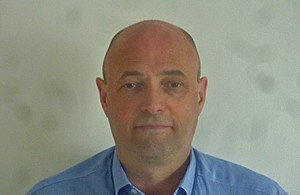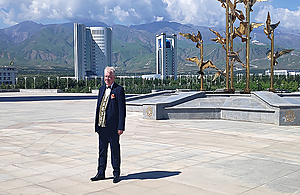Sensible measures protect the NNL workforce keeping the lights on
News story
We are sharing stories of people working on the Sellafield site throughout the coronavirus pandemic. Today we feature National Nuclear Laboratory’s Andy Haile.

Manager Andy Haile
As a manager in the National Nuclear Laboratory’s (NNL) operating Active Handling Facility on the Sellafield site, Andy Haile has had to consider measures to protect his own safety and that of his colleagues.
He has continued to attend work since the coronavirus lockdown began, as he explains:
One of the key roles of our facility is to support the EDF programme. That means we need to operate to keep the country’s lights on. As coronavirus hit, it quickly became clear we needed to make some changes to help keep everyone safe.
The first change we made was reducing those who needed to come to work to a minimum. We’d ordinarily have around 100 employees at work, but we’ve reduced this to a quarter of those. Despite this, we still needed to make other changes – after all lockers aren’t 2 metres apart.
We’ve also reduced the number of maintenance jobs taking place, and split jobs up, so fewer people are likely to be in an area at a given time. We’ve staggered start times so people were able to access work more easily.
It has been strange coming to work – I sometimes worry I’ve walked past a no entry sign when there’s no one around me, but of course there are fewer people around.
Our team has been fantastic. They understand that things are surreal and scary, but that we need to continue our essential mission. To help, they are doing all they can to ensure they, and others, are safe.
People have been changing their bait times, to avoid putting pressure on the canteen and you see people checking their exit is safe before they leave a room.
We know that more people will be coming back to site and our NNL facilities, in the near future. But we also know that we have to take small, gradual steps when doing so. The team have been great at giving feedback on what is working and what needs tweaked. This feedback is essential.
Andy recognised that things are unlikely to get back to how they were for quite some time, and NNL are looking at the ‘new normal’.
The biggest concern when more people are back at work will be how people get to work. I think we need to continue to encourage people to work from home when they can. Even if employees do need to come on to site, they should only come here for that specific piece of work. When it’s done, they should leave again. That’s not how we’ve previously worked.
After all, working from home is the safest option, if you can, and it’s the one that protects those of us who do need to be on the site.
Published 19 May 2020

